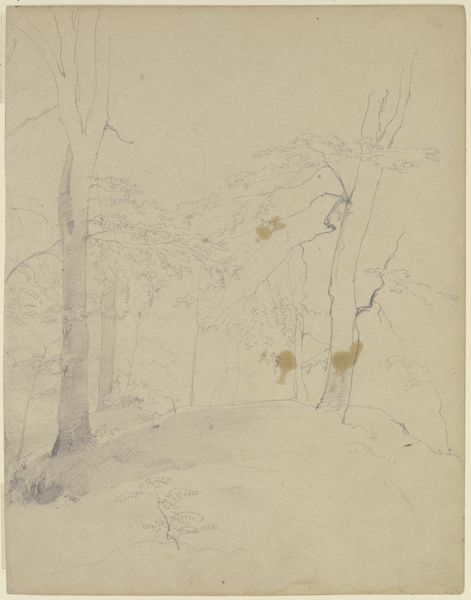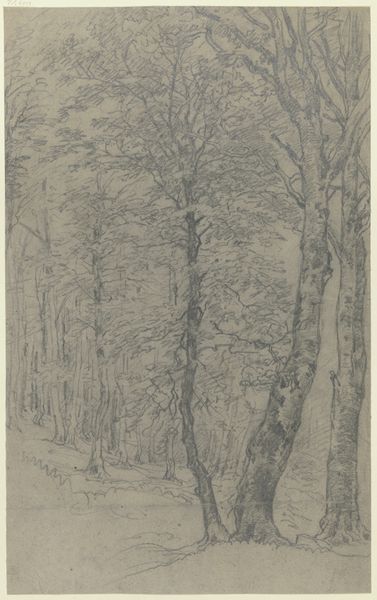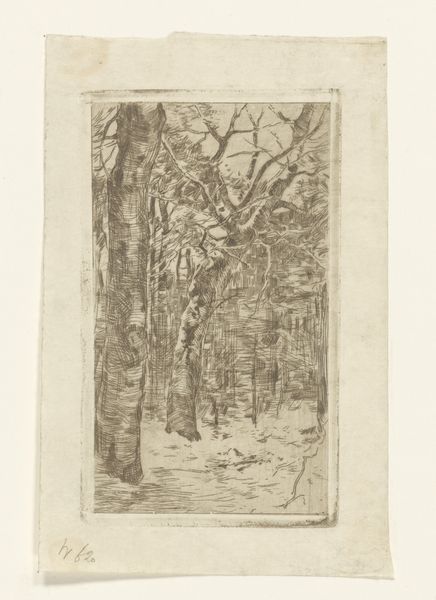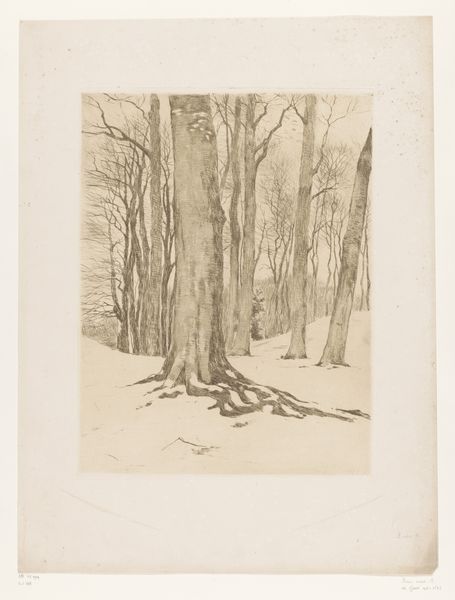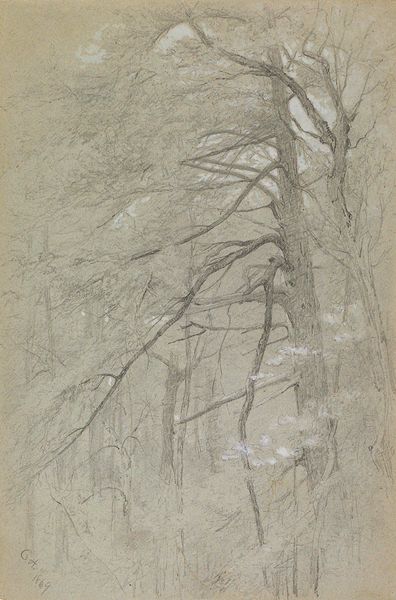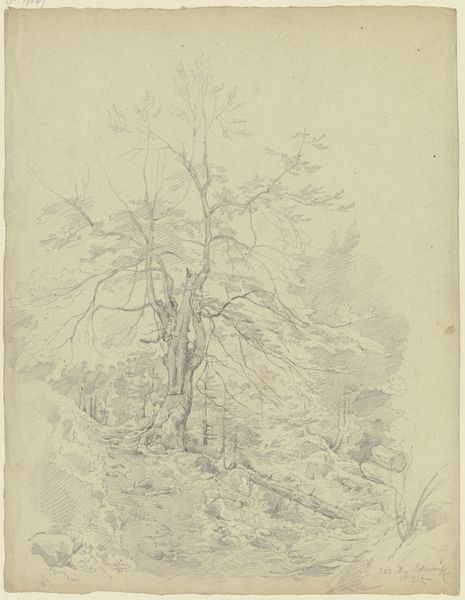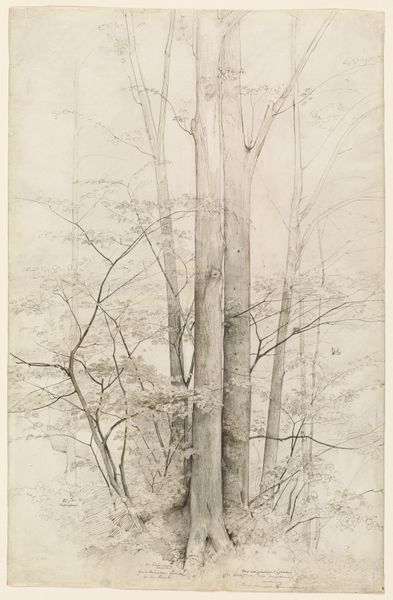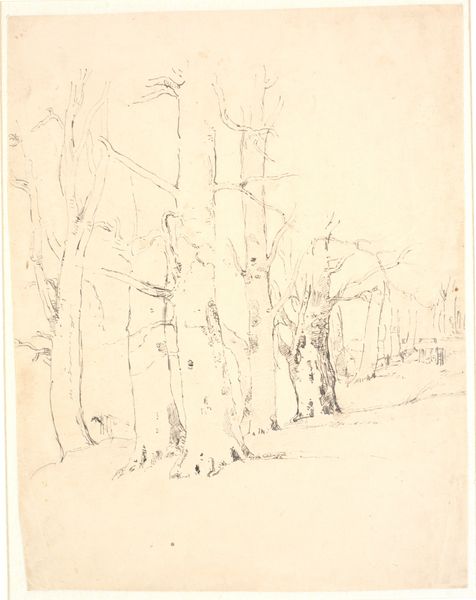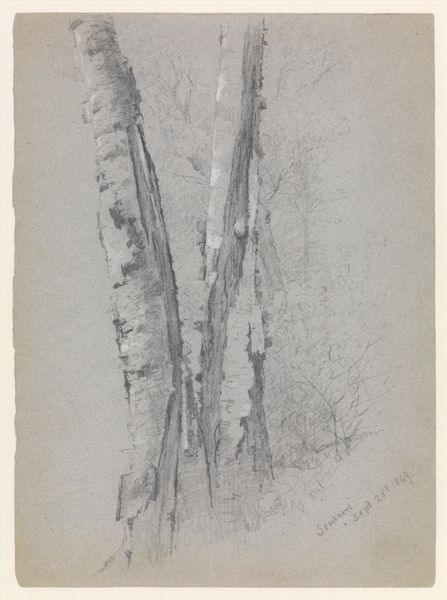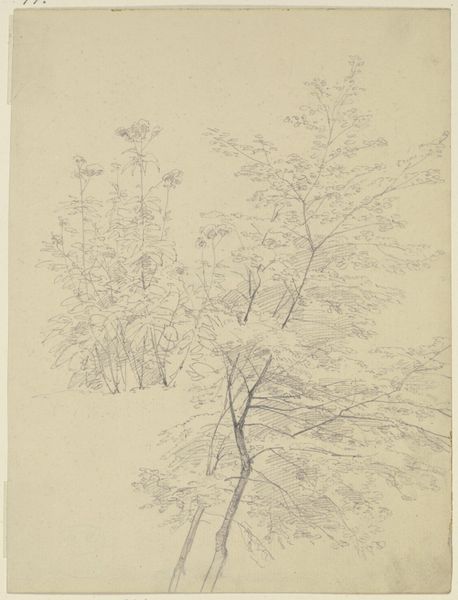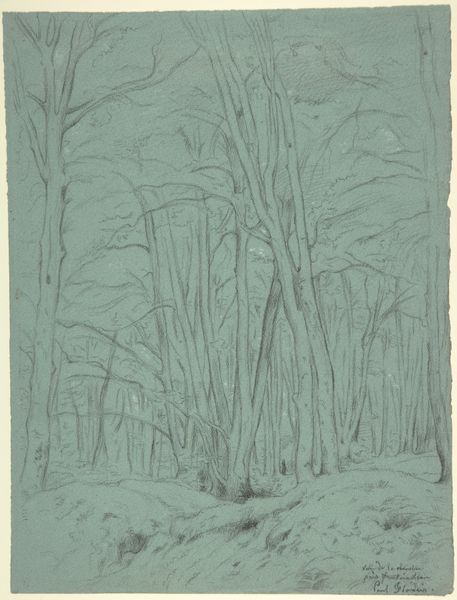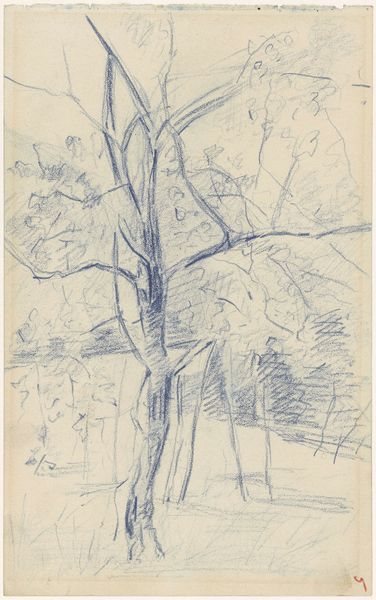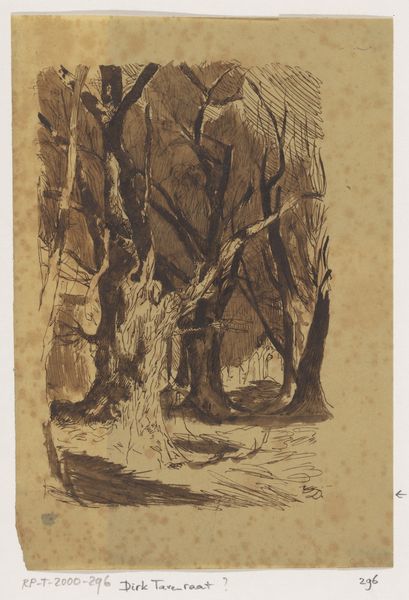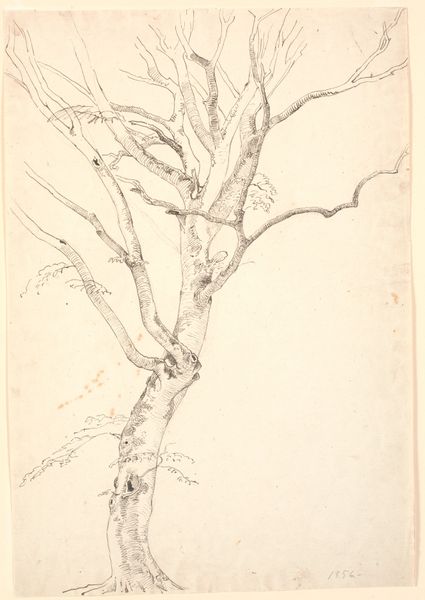
Dimensions: Sheet: 10 5/8 x 6 1/2 in. (27 x 16.5 cm)
Copyright: Public Domain
Curator: Carl Maria Nicolaus Hummel’s pencil sketch, “Trees near Diessen,” dating between 1841 and 1907, presents a fascinating, intimate look at a forest scene. Editor: Immediately, it evokes this feeling of being lost, not in a scary way, but in a reflective, almost dreamy state. The layering of trees almost creates a veil. Curator: Precisely. Note how Hummel uses pencil strokes to render the light filtering through the dense foliage. It’s a delicate dance between realism and a hint of something more emotionally charged, fitting in that liminal space with hints of German Expressionism. The stark trees might suggest a symbol of solitude, even resilience, as they reach towards the light. Editor: It's like glimpsing a half-forgotten fairytale forest—all gnarled shapes and shadowy suggestion. Are there certain recurring tree symbols present? The grouping seems relevant. Curator: In some schools of iconography, clusters of trees often symbolize community or hidden knowledge, potentially sacred groves. The upward direction of trees toward sunlight is pretty basic; and a well known aspiration symbol in many cultures, expressing both spiritual aspiration and organic growth, both core tenets to cultural health, wouldn’t you say? Editor: Absolutely! And there is such subtle power that pencil drawings offer. No heavy paints; it gets so stripped down that you feel this raw nerve connecting you with what the artist saw, and felt. Curator: That vulnerability is compelling. Considering Hummel’s broader oeuvre, his drawings, particularly these landscapes, show his intense connection with the natural world. This goes past faithful depiction; you can feel him meditating on life, loss, and even beauty. Editor: The drawing becomes not just a landscape but a self-portrait of the artist’s interior life. One really comes away seeing nature itself as a kind of sacred text. Curator: It invites us to consider nature as an enduring language. Editor: That silent dialogue resonates long after you step away. Curator: Leaving us changed—hopefully for the better.
Comments
No comments
Be the first to comment and join the conversation on the ultimate creative platform.
